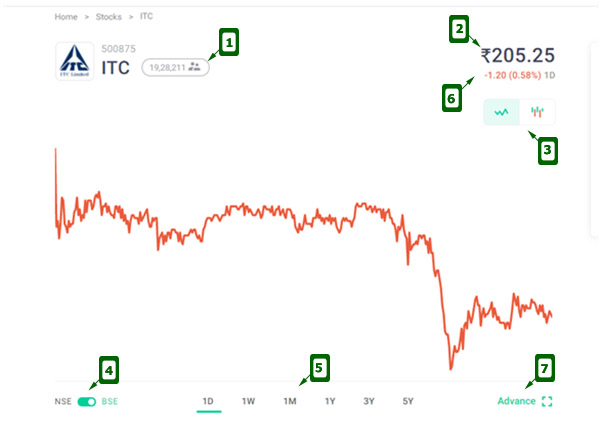Introduction to smart contracts
Last edit:
,
Invalid DateTime
What is a smart contract?
A “smart contract” is simply a program that runs on the Ethereum blockchain. It’s a collection of code (its functions) and data (its state) that resides at a specific address on the Ethereum blockchain.
Smart contracts are a type of Ethereum business relationship. This means they take a balance and tin be the target of transactions. Nevertheless they’re not controlled by a user, instead they are deployed to the network and run as programmed. User accounts tin and then collaborate with a smart contract by submitting transactions that execute a role defined on the smart contract. Smart contracts can define rules, like a regular contract, and automatically enforce them via the lawmaking. Smart contracts cannot exist deleted by default, and interactions with them are irreversible.
Prerequisites
If you’re only getting started or looking for a less technical introduction, we recommend our introduction to smart contracts.
Make sure you’ve read up on accounts, transactions and the Ethereum virtual car before jumping into the world of smart contracts.
A digital vending machine
Perhaps the best metaphor for a smart contract is a vending machine, as described by Nick Szabo. With the right inputs, a certain output is guaranteed.
To get a snack from a vending machine:
1
coin + snack selection = snack dispensed
2
This logic is programmed into the vending machine.
A smart contract, like a vending automobile, has logic programmed into information technology. Here’southward a simple example of how this vending machine would look if it were a smart contract written in Solidity:
1
pragma solidity 0.viii.vii;
2
three
contract VendingMachine {
4
v
// Declare state variables of the contract
6
address public owner;
seven
mapping (accost => uint) public cupcakeBalances;
8
9
// When 'VendingMachine' contract is deployed:
x
// one. set up the deploying address as the owner of the contract
xi
// 2. set the deployed smart contract'southward cupcake residual to 100
12
constructor() {
thirteen
possessor = msg.sender;
14
cupcakeBalances[address(this)] = 100;
15
}
16
17
// Allow the owner to increment the smart contract'south cupcake balance
18
function refill(uint corporeality) public {
19
require(msg.sender == owner, "Just the owner tin refill.");
twenty
cupcakeBalances[address(this)] += amount;
21
}
22
23
// Allow anyone to purchase cupcakes
24
function purchase(uint amount) public payable {
25
crave(msg.value >= corporeality * 1 ether, "You lot must pay at to the lowest degree i ETH per cupcake");
26
crave(cupcakeBalances[address(this)] >= corporeality, "Not enough cupcakes in stock to complete this purchase");
27
cupcakeBalances[address(this)] -= amount;
28
cupcakeBalances[msg.sender] += amount;
29
}
xxx
}
31
Show all
 Copy
Copy
Like how a vending machine removes the need for a vendor employee, smart contracts can supervene upon intermediaries in many industries.
Permissionless
Anyone can write a smart contract and deploy it to the network. You merely need to learn how to code in a smart contract linguistic communication, and have enough ETH to deploy your contract. Deploying a smart contract is technically a transaction, so you need to pay Gas in the aforementioned way you need to pay gas for a simple ETH transfer. Even so, gas costs for contract deployment are far higher.
Ethereum has developer-friendly languages for writing smart contracts:
- Solidity
- Vyper
More on languages
Nonetheless, they must be compiled earlier they can be deployed so that Ethereum’s virtual machine can interpret and store the contract. More on compilation
Composability
Smart contracts are public on Ethereum and can exist thought of every bit open APIs. This means you tin can call other smart contracts in your own smart contract to greatly extend what’s possible. Contracts can even deploy other contracts.
Learn more than about smart contract composability.
Limitations
Smart contracts alone cannot become information about “existent-world” events because they can’t send HTTP requests. This is by design. Relying on external information could jeopardise consensus, which is important for security and decentralization.
There are ways to get around this using oracles.
Another limitation of smart contracts is the maximum contract size. A smart contract can be a maximum of 24KB or information technology volition run out of gas. This can exist circumnavigated by using The Diamond Pattern.
Multisig contracts
Multisig (multiple-signature) contracts are smart contract accounts that crave multiple valid signatures to execute a transaction. This is very useful for avoiding single points of failure for contracts holding substantial amounts of ether or other tokens. Multisigs also split up responsibility for contract execution and central direction betwixt multiple parties and prevent the loss of a single private key leading to irreversible loss of funds. For these reasons, multisig contracts can be used for simple DAO governance. Multisigs require North signatures out of Thou possible adequate signatures (where N ≤ M, and M > 1) in order to execute.
North = 3, M = 5
and
N = 4, Thou = 7
are unremarkably used. A 4/vii multisig requires four out of seven possible valid signatures. This means the funds are yet retrievable fifty-fifty if three signatures are lost. In this instance, it too means that the majority of key-holders must concur and sign in order for the contract to execute.
Smart contract resources
OpenZeppelin Contracts –
Library for secure smart contract development.
- openzeppelin.com/contracts/
- GitHub
- Community Forum
DappSys –
Safety, simple, flexible building-blocks for smart-contracts.
- Dappsys
- GitHub
Further reading
- Smart Contracts: The Blockchain Engineering science That Volition Replace Lawyers
– Blockgeeks - Best Practices for Smart Contract Development
– Nov 10, 2019 – Yos Riady - Clean contracts – a guide on smart contract patterns & practices
– Jul thirty, 2020 – wslyvh
Was this article helpful?
Source: https://ethereum.org/en/developers/docs/smart-contracts/
 RosyandBo.com Trusted Information and Education News Media
RosyandBo.com Trusted Information and Education News Media



